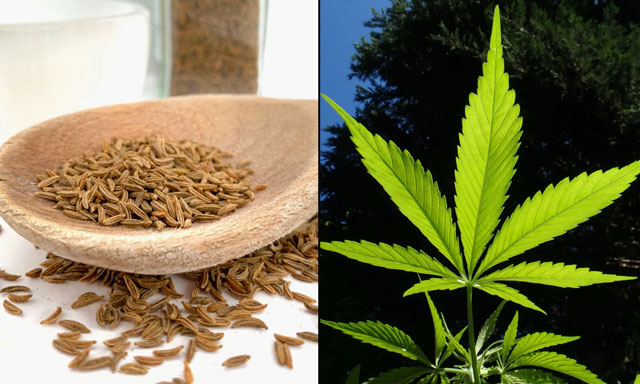Daijiworld Media Network – Las Vegas
Las Vegas, Oct 23: Researchers at the University of Nevada, Las Vegas (UNLV) have developed a new class of CBD-like compounds derived not from cannabis, but from a common kitchen spice: caraway seeds. Early pre-clinical trials suggest these compounds may be more effective at treating epilepsy and also promote brain cell development.
The team of psychology students and faculty genetically manipulated the spice to create compounds structurally similar to non-intoxicating cannabidiol (CBD). The resulting caraway-derived CBD was shown to prevent seizures, reduce seizure-related deaths, and support healthier brain cell growth — all without the sedative side effects often associated with current treatments, said Dustin Hines, co-author of the study and professor of neuroscience at UNLV.

“Childhood seizure disorders are often resistant to available drugs, and both the seizures and the current frontline therapies can severely affect brain development, cognition, and quality of life, making the discovery especially promising,” Hines added.
The study, published last month in the journal Neuropsychopharmacology, reported that these synthetic compounds significantly reduced seizure-related mortality in both adult and developmental epilepsy mouse models, supporting further preclinical and clinical development.
Funded by NIH grants through the National Institute of General Medical Sciences and the National Institute of Neurological Disorders and Stroke, the research aims to pave the way for new epilepsy therapeutics. Currently, the only FDA-approved CBD-based drug, Epidiolex, is derived from cannabis.
UNLV student Adriana Carrillo, who participated in the study, said, “Advancing this new class of therapeutics holds significant promise for patients who have exhausted existing treatment options, whether due to debilitating side effects or a lack of response to currently available therapies.”
She cautioned the public not to expect direct benefits from consuming caraway seeds, explaining that the seeds merely provide a scaffold for creating the CBD-like compounds.
The researchers emphasized that this discovery is just the beginning, with hopes that further studies will lead to safer and more effective treatment options for epilepsy patients in the future.